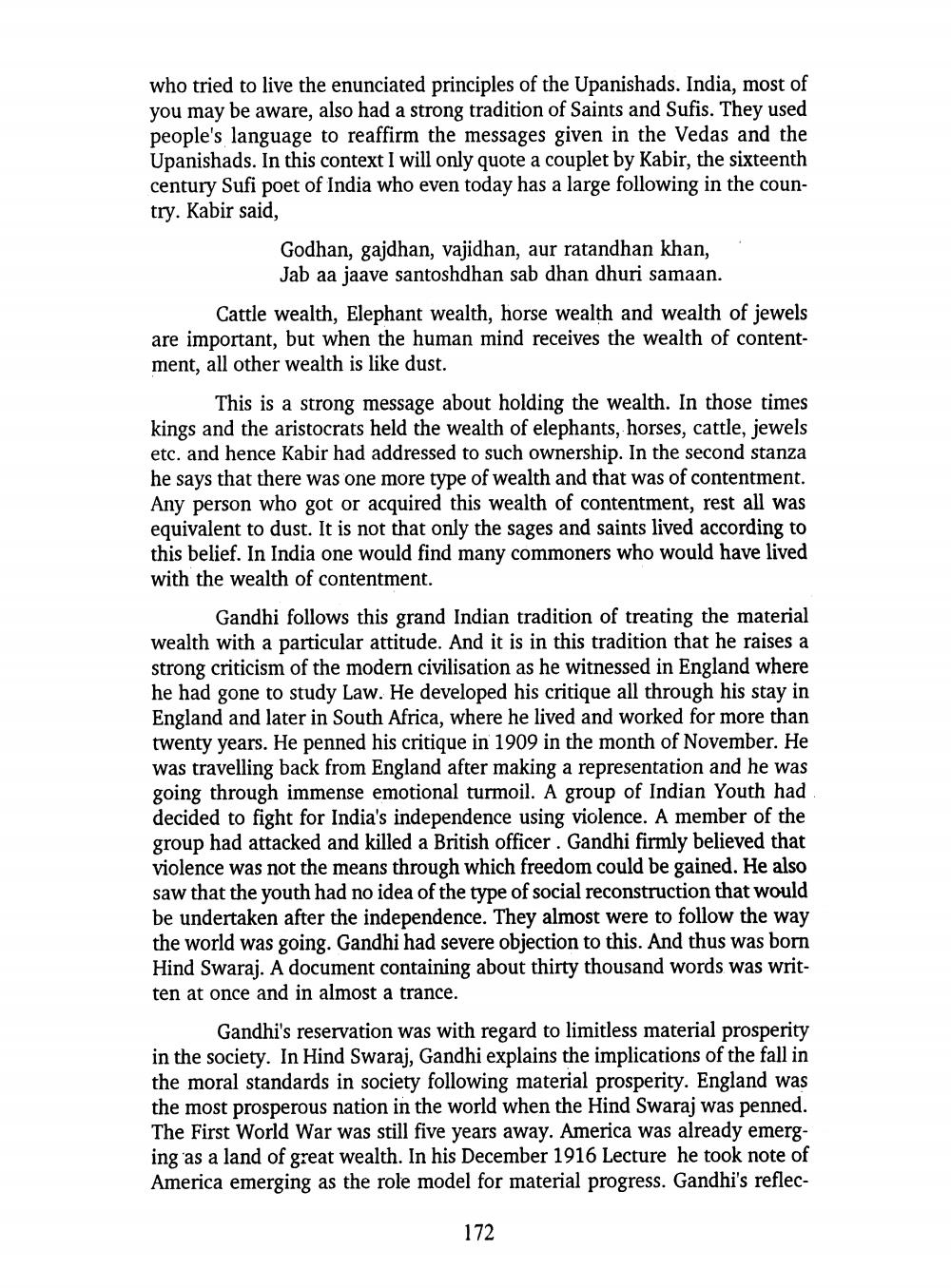________________
who tried to live the enunciated principles of the Upanishads. India, most of you may be aware, also had a strong tradition of Saints and Sufis. They used people's language to reaffirm the messages given in the Vedas and the Upanishads. In this context I will only quote a couplet by Kabir, the sixteenth century Sufi poet of India who even today has a large following in the country. Kabir said,
Godhan, gajdhan, vajidhan, aur ratandhan khan, Jab aa jaave santoshdhan sab dhan dhuri samaan.
Cattle wealth, Elephant wealth, horse wealth and wealth of jewels are important, but when the human mind receives the wealth of contentment, all other wealth is like dust.
This is a strong message about holding the wealth. In those times. kings and the aristocrats held the wealth of elephants, horses, cattle, jewels etc. and hence Kabir had addressed to such ownership. In the second stanza he says that there was one more type of wealth and that was of contentment. Any person who got or acquired this wealth of contentment, rest all was equivalent to dust. It is not that only the sages and saints lived according to this belief. In India one would find many commoners who would have lived with the wealth of contentment.
Gandhi follows this grand Indian tradition of treating the material wealth with a particular attitude. And it is in this tradition that he raises at strong criticism of the modern civilisation as he witnessed in England where he had gone to study Law. He developed his critique all through his stay in England and later in South Africa, where he lived and worked for more than twenty years. He penned his critique in 1909 in the month of November. He was travelling back from England after making a representation and he was going through immense emotional turmoil. A group of Indian Youth had decided to fight for India's independence using violence. A member of the group had attacked and killed a British officer. Gandhi firmly believed that violence was not the means through which freedom could be gained. He also saw that the youth had no idea of the type of social reconstruction that would be undertaken after the independence. They almost were to follow the way the world was going. Gandhi had severe objection to this. And thus was born. Hind Swaraj. A document containing about thirty thousand words was writ ten at once and in almost a trance.
Gandhi's reservation was with regard to limitless material prosperity in the society. In Hind Swaraj, Gandhi explains the implications of the fall in the moral standards in society following material prosperity. England was the most prosperous nation in the world when the Hind Swaraj was penned. The First World War was still five years away. America was already emerging as a land of great wealth. In his December 1916 Lecture he took note of America emerging as the role model for material progress. Gandhi's reflec
172




